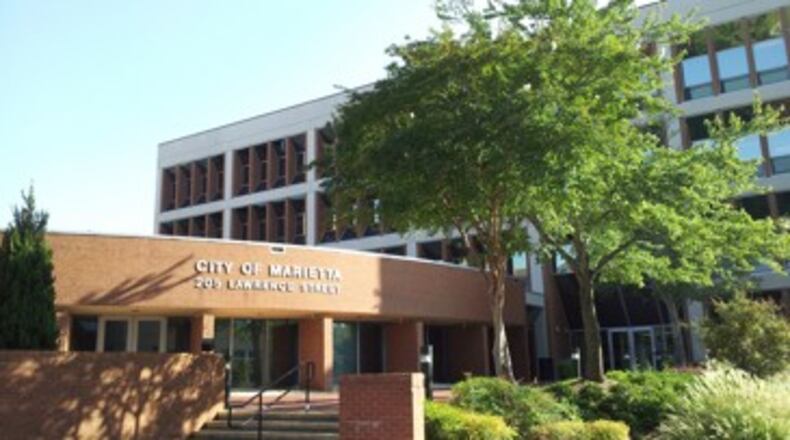The Marietta City Council imposed a six-month moratorium on new apartment buildings in the entire city on Wednesday, citing a need to reevaluate zoning guidelines in the wake of several requests for multifamily housing developments.
Rusty Roth, the city’s development services director, said at the April 12 council meeting that the temporary ban will give staff time to provide insight to the council to “determine whether there needs to be changes to our existing ordinances.”
The moratorium will not apply to any zoning applications filed prior to the council’s vote, said city attorney Doug Haynie. It will ban new applications for all multifamily housing requests for six months, and authorizes the city to hire a consultant to review zoning regulations if needed.
Mayor Steve “Thunder” Tumlin and the city council faced criticism over the perceived opposition to such development.
“I’m a little disappointed in that kind of thought pattern. Multifamily is not a sin, I promise you,” Marietta resident Donald Barth said at the meeting. “Apartments don’t have to be the stigma that you remember because the ball got dropped on Franklin Road. ... Normal people live in apartments, it’s just a fact of life.”
Franklin Road, now called the Franklin Gateway, was notorious in the city for its rundown, foreclosed apartments, blighted businesses and high crime rate and is an oft-used example of potential problems with apartments. The city worked for years to revitalize the area with a $68 million redevelopment bond approved by voters, and now it features the Atlanta United training stadium, after-school programs and community-driven transformation.
Eric Bishop, another resident who spoke against the moratorium, said the city officials need to think differently about how multifamily housing can help with development.
“We need to, I think, move beyond this notion that all apartments are bad, that all multifamily is bad,” Bishop told the council.
Ward 1 Councilwoman Cheryl Richardson said the moratorium has nothing to do with apartments or the type of people who live in them; it’s about where to build apartments in the city and how to form mixed-housing neighborhoods, not just “apartment row” like Franklin Gateway used to be.
“The moratorium gives us an opportunity to step back and look at our zoning categories and look at where it makes sense for apartments to go,” Richardson said. “I don’t think every neighborhood, every street, every area makes sense for an apartment.”
Resident Larry Wills spoke in favor of the moratorium and called on the city council to evaluate all of its “loosey-goosey” zoning practices.
“We’re running out of developable space,” he said.
The council approved the moratorium 6-1 with Councilman Joseph Goldstein in opposition.
About the Author
Keep Reading
The Latest
Featured




